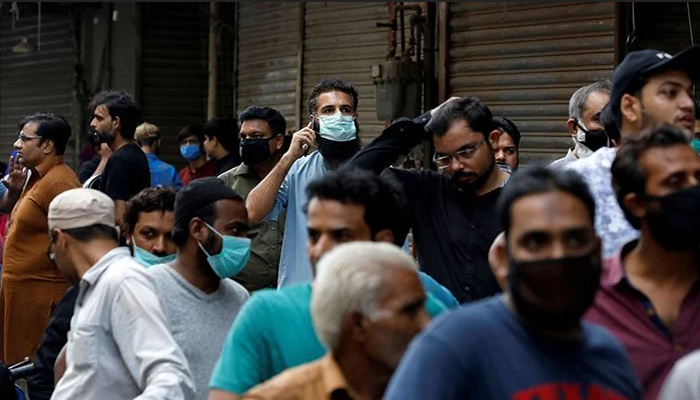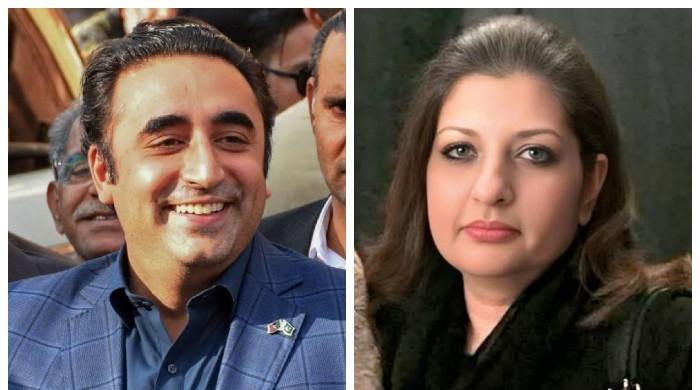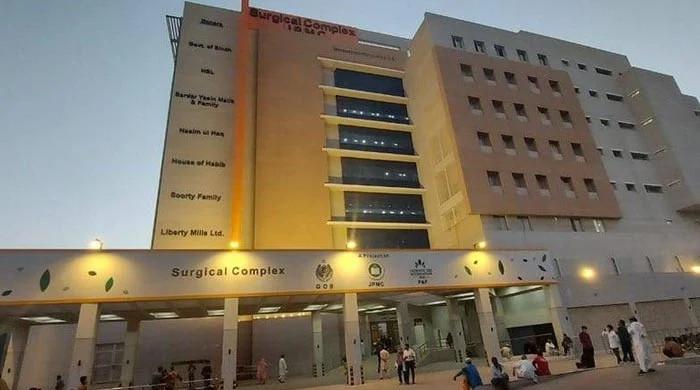COVID-19: Pakistan's way forward post lockdown
Pakistan will have to fight against a dangerously prevalent lackadaisical attitude if it wants to crest the wave of the coronavirus
June 04, 2020

Pakistan is poised on a knife’s edge after the lockdown was lifted in phases countrywide. While most other countries have eased the lockdown after a flattening of the curve, Pakistan is doing so when the perception is that the number of COVID-19 patients has not hit the peak as yet. The move is not premised on a strategy, but is instead geared towards alleviating the hardship of daily wagers and traders as expressed by Prime Minister Imran Khan.
There is no doubt that jobs and livelihoods have been badly impacted not only in Pakistan, but on a staggering international scale as well. More than 1.6 billion people around the world are in danger of having their livelihoods destroyed by the economic impact of COVID-19, according to the International Labour Organisation (ILO) which comprises almost half of the global workforce of 3.3 billion people.
Notwithstanding the rise of online business during the lockdown, it has to be kept in mind that Pakistan’s economy by nature is manual and labour-intensive and has taken a direct hit during the lockdown. It is gradually being accepted that lockdowns are not sustainable in the long run. Lockdowns by nature are temporary, because of the ensuing economic upheaval and the fear and uncertainty factor. The only way out is a change in lifestyle. As the lockdown eases, the people have to change their habits and adapt to the new normal to protect themselves and others.
The art of making progress is the ability to adapt to change. The World Health Organisation (WHO) has said: “We should be ready to “change our behaviors for the foreseeable future.”
The major challenge is to enforce standard operating procedures in Pakistan after the easing of the lockdown, as people are coming out in droves. In a video statement, Sindh Chief Minister Murad Ali Shah asked in frustration, “Why are you people going out without any valid reason? We will have to adapt to a new pattern of life in the COVID-19 era.”
Clear and effective risk communication is one of the key tools for ensuring public adherence. At the federal level, there has been passive policy making in the face of a crisis. Centralised and disorganised decision-making has resulted in a haphazard national response with little adherence to scientific analysis. Where is the data-based evidence such as the basic reproduction number (Ro) to demonstrate if the pandemic is getting under control? At the national and provincial level, the response should have been based on reassurance rather than on the element of fear.
The lockdown time should have been utilised to build testing capacity and establish a contact-tracing mechanism. Pakistan ranks 136th in the number of tests per million and would do well to learn from South Korea which drastically reduced the number of coronavirus cases in their country. South Korea had a strategy in place as soon as people started testing positive for COVID-19. They made use of mobile phone technology, using location data to monitor whether people were violating SOPs. It was also used for contact-tracing to determine whether people had been in contact with others who have the virus, so they could be tested or quarantined.
COVID-19 has laid bare the flaws in infrastructures around the globe. In Pakistan where the state spends less than 3% of its GDP on health, it has exposed the fragility of the tottering health infrastructure. A burgeoning population and static state spending on health care was always a recipe for disaster.
Around the globe, with medical infrastructure reeling from the pandemic, the unemployment crisis will go hand in hand with famine. The World Food Programme (WFP) has warned of a catastrophic famine in which more than 300,000 people are likely to starve to death daily around the world. 1.6 billion people are at risk of perishing from the fall out of the coronavirus. The world’s most deprived countries will be hit by the peak of the pandemic in the next few months.
WHO emergencies director Michael Ryan, says, "This virus may become just another endemic virus in our communities and this virus may never go away. HIV has not gone away — but we have come to terms with the virus."
All the while, countries are coming to terms with one inescapable fact. We are in this together. The virus does not discriminate between race, colour, religion, borders and socio economic status. It is coming for everyone.
Developed countries need to lend a helping hand to those countries whose medical systems are on the verge of collapse. More than 30 countries including China, Turkey, Britain, France, Germany, Russia, Japan, Azerbaijan, Qatar, Kuwait and the UAE have sent food aid, COVID-19 kits and essential supplies to dozens of developing countries.
At a time of heightened global divisions, the COVID-19 pandemic is reminding us of our shared brotherhood. On the 75th anniversary of VE Day (Victory in Europe Day) this year, parallels of the pandemic with World War II were drawn by global leaders as the world struggles to get to grips with an invisible and deadly enemy. In his speech, German President Steinmeier recalled how nations joined forces to fight the scourge of Nazism and said the same unity was needed to defeat the virus. “For us Germans, ‘never again’ means ‘never again alone. We want more, not less cooperation in the world — also in the fight against the pandemic.”
In Britain, Prime Minister Boris Johnson said in a letter to veterans, “On this anniversary, we are engaged in a new struggle against the coronavirus which demands the same spirit of national endeavour that you exemplified 75 years ago.”
Queen Elizabeth II alluded to the spirit of VE Day in a speech to the nation which applies to today’s times as it did 75 years ago. “Never give up, never despair.”
In Pakistan, Dr Christian Turner, UK Ambassador to Pakistan, said on VE Day, “there are poignant parallels with COVID-19, a generation wondering how to shape a better future.”
For Pakistan’s part, it will have to grapple with a changed lifestyle and adhere to SOPs or face the closure of markets violating the rules as has recently happened in Karachi. During snap checking, the city administration found not only clusters of customers, but also traders not wearing masks or observing social distancing.
It is this kind of lackadaisical attitude, disregard for rules and lack of trust in the government that Pakistan will have to fight against if it wants to crest the wave of the coronavirus.











